|
In celebration of the Fourth General Congress of the Union of the Catholic Apostolate, the Catholic Apostolate Center will share weekly homilies from the Congress. Holy Eucharistic Celebration in Preparation for the UAC General Congress Church of San Salvatore in Onda, Rome, June 19, 2024 Theme: “With Christ, our hope, we set out again together with joy and hope renewed.” Dear Brothers and Sisters of the Pallottine Family,
As we gather together to pray for the entire Pallotttine Family, and for the forthcoming UAC General Congress in particular, I wish to begin by sharing with you two quotations about the power of prayer. “Prayer is the place of refuge for every worry, a foundation for cheerfulness, a source of constant happiness, a protection against sadness,” said St. John Chrysostom. Pope Francis once said: “Our strength is prayer and the prayer of the humble person is the weakness of God. The Lord is weak only in this one sense. He is weak before the prayers of His people.” We are very busy with the preparations for the IV General Congress of the UAC scheduled to take place in Rome from 25th to 31st July 2024. Naturally, there are many practical things to do and some of us are really working hard for its successful conduct. However, we realize that the most powerful spiritual tool before us is prayer for the blessings of God for the Union and for the Congress in particular. Following the words of St. Chrysostom, and knowing that prayer is the place of refuge for every worry and the foundation for cheerfulness, we wish to celebrate the Holy Eucharist at the altar of St. Vincent on every Wednesday until the 24th July 2024, together with the entire Pallottine Family, and pray for the success of the General Congress. We pray that this international event may contribute to the life of the Union by creating the sense of communion among us and by producing good apostolic fruits for the Universal Church. Today we reflect on the main theme of the Congress itself: “With Christ, our hope, we set out again together with joy and hope renewed.” This is a theme chosen after a long process of discernment during the last General Coordination Council Meeting of the Union in 2022. The Biblical text that inspired the participants was the Emmaus experiences of the two disciples, as described by the Evangelist Luke (24: 13-35). The two disciples were running away from Jerusalem, totally disappointed and disillusioned after the death of Jesus. The Risen Lord came into their midst, walked with them, and explained the Scriptures about the true mission of the Messiah. Finally during the breaking of the Bread, they recognized the Risen Lord. They were filled with joy and a renewed hope and returned to Jerusalem to recount all that happened. They declared that Jesus was Risen Indeed. Their sadness turned into joy; their disillusionment turned into the Easter hope. Addressing the moderators and delegates of the Associations and Ecclesial Movements during the meeting on 13 June 2024, in which three of us from the Union also participated, Pope Francis spoke of three “synodal virtues that can derive from a spiritual conversion: thinking as God thinks, overcoming exclusiveness, and cultivating humility.” I share with you the thoughts of Pope Francis that can help us also to have the correct vision and spiritual attitudes within the UAC, leading to a renewed hope and a greater development within our Spiritual Family. The following are the thoughts of the Holy Father. First: thinking as God thinks. This is the primary interior change that is asked of us: to move beyond “merely human thought” to embrace the “thought of God.” Before making any decision, before starting any program, any apostolate, any mission within the Church, we should ask ourselves: what does God want from me, what does God want from us, at this moment, in this situation? Is what I envision, what we as a group have in mind, truly aligned with the “thought of God”? Let us remember that the Holy Spirit is the protagonist of the synodal journey, not we ourselves: he alone teaches us to listen to the voice of God, individually and as a Church. God is always greater than our ideas, greater than prevailing mindsets and the “ecclesial fashions” of the day, even the charism of our particular group or movement. Therefore, let us never presume that we are “in tune” with God: rather, let us continually strive to rise above ourselves and embrace God’s perspective, not that of men and women. This is the first great challenge. Thinking as God thinks. Second: overcoming exclusiveness. Please, let us be wary of the temptation of the “closed circle.” These are challenges for us: limiting ourselves to what our “circle” thinks, being convinced that what we do is right for everyone, and defending, perhaps inadvertently, positions, prerogatives, or the prestige of the “group.” Alternatively, we could also be impeded by the fear of losing our sense of belonging and identity by opening up to other people and differing viewpoints, which stems from failing to recognize diversity as an opportunity rather than a threat. These are “enclosures” in which we all risk imprisonment. Let us be attentive: our own group, our own spirituality are realities that help us journey with the People of God, but they are not privileges, for there is the danger of ending up imprisoned in these enclosures. Thirdly and finally: cultivating humility. Here we understand that the starting point of spiritual conversion must be humility, the gateway to all virtues. It saddens me when I encounter Christians who boast: because I am priest from this place, or because they are lay people from that place, because I am from this institution... This is a bad thing. Humility is the door, the beginning. It compels us to scrutinize our intentions: what do I really seek in my relationships with my brothers and sisters in faith? Why do I pursue certain initiatives within the Church? If we detect a hint of pride or arrogance within us, then let us ask for the grace to rediscover humility. Indeed, only the humble accomplish great things in the Church for they have a solid foundation in the love of God, which never fails, and therefore they do not seek further recognition. This phase of spiritual conversion is also fundamental for building a synodal Church: only the humble person esteems others and welcomes their contribution, advice, inner richness, bringing out not their own “I”, but the “we” of the community. It is the humble who safeguard communion in the Church, avoiding divisions, overcoming tensions, knowing how to set aside their own initiatives in order to contribute to joint projects. In serving, they find joy and not frustration or resentment. Living synodality, at every level, is truly impossible without humility. I want to say once again, in order to emphasize the role of ecclesial movements: ecclesial movements are for service, not for ourselves. Ecclesial movements are meant to serve the Church, they are not a message in themselves, an ecclesial centrality. They are for service. Always think about this: my membership in an ecclesial movement, is it in the association or is it in the Church? It is in my movement, in my association for the Church, as a “step” to help the Church. Movements closed in on themselves, however, should be eliminated, they are not ecclesial. The above words of the Holy Father resonate the mysticism of St. Vincent Pallotti. He prayed: “Lord, destroy my life and let your life be my life.” He loved the Church and wished to form missionary disciples impelled by the love of Christ. Pallotti was the man of humility, poverty and service. Ego clash, domination, prejudices, exclusiveness etc., destroy the works of the Union. Hence the great need for spiritual conversion in all of us. There is an interesting episode mentioned in today’s first reading which can also give a key to a renewed hope within the Union. Elijah was about to be taken up to heaven. At that point Elijah said to Elisha, “Ask what I shall do for you, before I am taken from you.” And Elisha said, “I pray you, let me inherit a double share of your spirit.” And Elisha received a double share of the spirit of Elijah. He took up the mantle of Elijah that had fallen from him, and went back and stood on the bank of the Jordan. He struck the water, saying, “Where is the Lord, the God of Elijah?” When Elisha had struck the water, the water was parted to the one side and to the other; and he went over (cfr. 2 Kings 2:1, 6-14). On this day, trusting in the great power of prayer, we too ask God for a double share of the spirit of St. Vincent Pallotti, that is the spirit of Jesus, the Apostle of the Eternal Father. May the UAC General Congress be an occasion to relive and celebrate this spirit and charism of St. Vincent in great humility, always in service of the People of God. Amen. Jacob Nampudakam, S.A.C. UAC President
0 Comments
A lyric of one of my favorite Advent hymns, “O Holy Night,” shares the simple yet profound posture in which we are called to enter into the Advent and Christmas seasons: on our knees. Perhaps many of us already find ourselves there—either out of reverence or sheer exhaustion. For many, the year 2020 will forever be overshadowed by confusion, darkness, anxiety, fear or stress due to the COVID-19 pandemic. Perhaps you, like me, have just wanted it all to be over. We may feel tired of the masks, the canceled events, the physical distance from our friends and loved ones, uncertain job security, or the fear for our health and for those around us. Our hands are raw from sanitizer. Our hearts are raw from stress and confusion. Pandemic fatigue is real. Is this exhaustion, stress, and confusion similar to what the Jewish people felt as they traversed to their hometowns for Caesar Augustus’ census two thousand years ago? “Where is the Savior foretold by the prophets?” they must have thought. “Where is the king who would overthrow all oppressors and establish God’s kingdom forever? Where is God? And why does he seem silent?” For God’s Chosen People, continued faith and hope must have been a hard choice. For God’s chosen people, continued faith and hope is a hard choice. And it is precisely when we are caught up in our feelings of negativity, sadness, or desolation that we fail to see God at work. Too consumed by looking inward, we forget to look up and see the star. It is precisely for this reason that hardly anyone attended the most important event in all of human history: the birth of the Savior of the World, a child born quietly in the recesses of Bethlehem. So where do we find ourselves? Are we grumbling that God has not done enough to fix our broken situation? Are we stressed about the logistics to get our family to the census? Are we awaiting our own version of the Messiah, making our own golden calves? Do we look back longingly, preferring the slavery of Egypt to the wilderness? Or have we abandoned our relationship with God altogether? Finally, are we on our knees? Mary models this posture with her very life. I cannot help but imagine that she received the news from the Angel Gabriel on her knees. “How can this be?” she asked, greatly troubled at what was said in the midst of the holy and miraculous encounter. Her fiat was only possible because of her posture of humility. This receptivity is what every Christian is called to emulate. This posture in the presence of God is also important because kneeling is a physical reminder of reality: God is God, and we are not. Put another way, God is Creator, we are created. By kneeling in prayer, we enter into a dialogue with God in a posture of humility that reflects the true order of reality. Kneeling is also a posture of vulnerability that manifests our littleness before a great God. This littleness is not belittling, but reveals our true dignity. We have the courage to kneel because, in a sense, God knelt first. As St. Paul reminds us, “He emptied himself, taking the form of a slave, coming in human likeness; and found human in appearance, he humbled himself” (Phil 2:7). How can we then fear to approach such a gentle and humble Savior? If 2020 has taught us anything, it’s that we are not in control. Mary experienced this too. She did not anticipate a virgin birth, losing her Son for three days, or watching her Son’s crucifixion. This lack of human control is the truth regardless, but it’s a reality often obscured by our schedules, appointments, bank accounts, occupations, or social events. And when many of these good things have been stripped from our day-to-day lives, we are forced to reckon with our vulnerability. We are reminded that, ultimately, our Good Father holds us and our world in existence. We fall to our knees. Let us therefore approach Him lovingly this Christmas in this humble posture. Let us honor and reverence Him by offering to the Christ-child all our insecurities, fears, or limitations. I invite you to offer each sacrifice, hardship, or suffering as a piece of straw to warm the Christ-child this season. To look for the guiding star each day that leads us to Bethlehem. To name throughout the day what you are thankful for rather than succumb to grumbling. To spend some time reading Scripture, attending a Mass virtually or in person, sharing food or gifts with the needy, or singing an Advent hymn. To open our hearts to God’s way of doing things rather than grasping for control on our own. To fall on your knees. This season, may we join the shepherds, the wise men, and all the angels and saints in this humble posture filled with breathless hope, joy, and excitement to adore Christ the Lord, the newborn King, the answer to each prayer, the fulfillment of all desire. And may we prepare a full, warm manger for the Christ-child to rest in on Christmas Day. 6/30/2020 Living the Mission of Jesus: Overcoming Racism by Entering In, Listening, and AccompanyingRead NowThe din of breakfast time in a house full of little ones required that I practically yell to my husband to be heard over requests for more milk: “I just feel so sad for our country. I feel sad that so many people are suffering. I’m sad about how devastated God must feel.” Before he could respond, my sweet, sensitive 5-year-old hugged my legs. “It’s okay to feel sad, Mom. But, why are you sad for our country?” And so our dialogue began. I gently told him about the injustices being faced by our Black brothers and sisters. I reminded him that God made each of us in His image, and that we are each deeply loved by Jesus. I reminded him that racism is a sin, and that Jesus conquered our sins by His death on the Cross. We love Jesus and honor His sacrifice by turning away from sin. And then I told him that we have work to do: as Catholics, we get to be like Jesus by fighting against racism. As believers, we are called to make the world more loving and just. So together, we enter this mission of Christ. Our baptism calls us and sends us out, equipping us to live as members of the Body of Christ. The Catechism calls us “members of each other, (CCC no. 1267)” and as such, we have a responsibility to live that way. Using the life and love of Jesus as the guiding principal of our faith, we are invited to acknowledge the suffering of those around us. Saint Paul writes in his letter to the Corinthians, “If one part suffers, every part suffers with it; if one part is honored, every part rejoices with it. Now this is the body of Christ” (1 Corinthians 12:26). This is unity as the Body of Christ: a people not positioned as ‘left’ or ‘right,’ for only the unborn or for only Black lives, but positioned at the foot of the Cross. Our Church, informed by the Gospels, calls us together to this work to uphold the dignity of the person, letting Jesus show us the way. Jesus was moved with compassion. At the death of Lazarus, he wept. At the woman’s desperation for healing, he allowed himself to be touched by her. He entered into the woman at the well’s loneliness and shame and met her with mercy. Jesus showed up heart first, revealing how we might accompany each other. As a white woman, I cannot know the suffering of the Black community. I can, however, emulate Jesus by allowing myself to hear and see hurt and be moved deeply by it. Instead of rationalizing, self-aggrandizing, or refusing to acknowledge the pain of another’s story, I open my eyes to see the brokenhearted—even when it challenges me, even when it hurts. Like Jesus, I weep for the loss of Breonna Taylor, George Floyd, Ahmaud Arbery, Rayshard Brooks, and so many others. I allow myself to feel and enter into the pain. I lean in until it makes me want to do something. Jesus stood with the vulnerable. God made flesh dwelled among us and was moved with compassion for his people. Seeing the suffering of Martha and Mary, he raised Lazarus from the dead. At the ailing and fear of the bleeding woman, he extended healing and peace. He saw the shame of the woman at the well and revealed himself as God to her, declaring her worthy of His life-giving water. In these examples and countless others, Jesus reveals himself as unapologetically for and with the least of these. As Catholics, we are called to this mission. In response to the just anger of our Black brothers and sisters, we stand in solidarity with all who experience the sin and effects of racism . Moved by this pain, we cry out to our Father for healing and peace. Using our voices, votes, and dollars, we stand for and with the Black communities and all affected by the sin of racism, declaring the value of each life and the dignity of each person. I am tempted to avoid this work. Showing up heart first the way Jesus did requires a vulnerability and humility I often lack. I become disproportionately concerned about being comfortable and being right. I am tempted to keep my head down, refusing to be moved and challenged by new voices and stories. Yet, I am called to look up. When I pridefully insulate myself from the pain of a hurting person or community by my refusal to enter in, openhearted, I deny the dignity of their personhood by not validating their experience. By guarding my hardened heart, I fail my baptismal calling. Jesus concerned himself more with loving the low in spirit than the repercussions of caring. He entered in, listened, and loved each person—especially the marginalized. So today I seek to live like Jesus. I choose to sit in sorrow for the pain of my Black brothers and sisters. I lift up my voice in prayer, confident that God sees and cares deeply about justice, unity, and life. I choose to look to the mission of Jesus to remember my own. Join me.
“Do not be troubled if you do not immediately receive from God what you ask him; for he desires to do something even greater for you, while you cling to him in prayer” -Evagrius Ponticus There are often times in our lives when God doesn’t seem to be answering our prayers. We pray repeatedly for certain people or intentions, sometimes for days, months—and even years—but our prayers seem to go unanswered. When nothing seems to be happening, it is easy to feel weary and disheartened. For the past several years, my husband and I have been praying for a specific situation that has only gotten more frustrating and bleak. At Mass during the first week of the Lenten season, I heard the words of Jesus to his disciples, “Ask and it will be given to you; seek and you will find; knock and the door will be opened to you” (emphasis added). After praying with this reading throughout the week, I heard the following words in my heart: “keep knocking.” I took this as a reminder to persevere in prayer. Whether or not we think God has answered our prayers does not change the fact of who he is: a good Father who knows what we need. Our intention to pray should not spring solely from the fact that we need something, but from our desire to strengthen our relationship with God and to be transformed and conformed to his will in the process. The Catechism summarizes it well when it says, “prayer is a battle” (2725). I’ve found this to be true on multiple fronts. First, it’s a battle to even set apart time to pray each day. It often seems that I don’t have time or that there are so many more important things to do. This year for Lent, I’ve decided to set apart the first 10-15 minutes of my children’s naptime for quiet prayer. This puts to practice a fact I already know intellectually: prayer gives my days purpose and meaning. Another opponent we fight in the battle of prayer is distraction. I often find that as soon as I commit to prayer time, my mind wanders or suddenly races with things to do. It’s normal to experience distraction in prayer. When this happens, simply bring yourself back to the present and don’t give the distraction too much attention. Other times, my prayer life seems dry and dull. It feels hard to pray and I don’t even have words to say. Additionally, we can experience something that might be the hardest of all: seeming silence in response to our prayers. The Catechism extrapolates, “Our battle has to confront what we experience as failure in prayer: discouragement during periods of dryness…disappointment over not being heard according to our own will…To overcome these obstacles, we must battle to gain humility, trust, and perseverance” (2728). Anything of merit is proven in times of hardship: our commitment to marriage, our love for our family, our life of faith, our dedication to a cause or ideal. We are unable to excel in an endeavor if we’ve never practiced. That is why my husband jokes that he will never pray for patience, because he doesn’t want to be presented with opportunities that will invite him to grow in that particular virtue. The Catechism speaks on this as well, “Filial trust is tested - it proves itself - in tribulation” (2734). Occasionally, we might not receive an answer to prayer immediately because the repeated action of prayer will make us grow in some way: in charity, in perseverance, in faith. The Catechism goes on to ask, “Are we asking God for ‘what is good for us?’ Our Father knows what we need before we ask him, but he awaits our petition because the dignity of his children lies in their freedom. We must pray, then, with his Spirit of freedom, to be able truly to know what he wants.” (2736) Perhaps we are praying for something that is not good for us. Or, even more likely, for something that is not best for us. Our prayers may be pure, well-intentioned, and holy, but may only partially supply what we, or the people we’re praying for, need. We often can only see part of the whole picture; our ways are not God’s ways. An example of this can be found in the story of St. Monica, who prayed for her son, Augustine, for 17 years before he was baptized and entered into the Catholic Church. In the midst of her prayers for the conversion of her son, Augustine snuck out of her care and escaped to follow his worldly pursuits in Rome. At the time, this was devastating to Monica, who only saw his continued descent into a life of sin. But it was in Rome that St. Augustine met St. Ambrose—the spirit-filled bishop who was a major catalyst in Augustine’s conversion. This example shows a good prayer that was seemingly unanswered. God did not seem to be “listening” to Monica’s pleas for her son to stay with her. Instead, he used a hopeless situation to bring about an even more powerful encounter that led to Augustine’s salvation. God never fails to hear our prayers. Said again, our prayers are always heard. By praying for something repeatedly, we grow in our charity for others, in our perseverance, and in our faith. St. Augustine himself reminds us of this, “God wills that our desire should be exercised in prayer, that we may be able to receive what he is prepared to give.” The more difficult prayer is not to pray for what we want or think we want, but to pray for God’s will to be done, as Jesus teaches us in the Garden of Gethsemane. The goal of prayer is a deepened relationship with and the love of God. We need prayer because we need God. Prayer is meant to change and transform us to be more like Christ, who lived in complete unity with the will of His Father. As the Catechism reminds us, “Against our dullness and laziness, the battle of prayer is that of humble, trusting, and persevering love” (2742). As we continue to grow in our understanding and practice of prayer this Lent, I invite you to persevere in the “battle” in order to say with Christ, “not as I will, but as you will.” For more resources on Prayer, please click here. “Who did you pick as your confirmation Saint?”
“St. Vincent!” “Oh cool, St. Vincent DePaul, that’s great!” No…not him…St. Vincent Pallotti…” “Who is that?” The name game for saints with common names is a frequent and sometimes frustrating occurrence, as is often the case with St. Vincent Pallotti—my patron, confirmation saint, and friend. Pallotti was many things: the friend of popes and cardinals, confessor of many of the religious in Rome at the various colleges, and great supporter of the laity. Throughout his 55 years of life, Pallotti did everything for the infinite glory of God (infinitam Dei gloriam). His life, message, and charism were life-giving and meaningful while he was alive, as well as today. Many saints can seem out of our reach—St. Joseph of Cupertino is known for flying and St. Padre Pio of Pietrelcina received the stigmata. While there are accounts of St. Vincent Pallotti levitating and bilocating, his life and legacy are not marked solely by these acts of mysticism. One of the main reasons that Pallotti’s example resonates so deeply with me in 2020—170 years after his death—is because of how humble and “normal” his life was. Now, “normal” is quite relative, but in comparison to many well-known saints, Pallotti’s life was normal, even boring. Pallotti’s parents were devout and his love for Christ and the Church was evident from a young age. There are many stories of St. Vincent’s great care for the poor, including a story of him giving away his bed to a beggar. St. Vincent was not a particularly good student as a young boy, and it was not until his mother prayed a novena to the Holy Spirit for his education that Pallotti became a model student. As a priest of the Diocese of Rome, Pallotti spent much of his time hearing confessions. After a cholera epidemic struck Rome in the mid-1800s, Pallotti founded a home for orphaned girls. He set up night schools so that working men could receive an education. He was also a mathematician. In fact, it was in his study of calculus that he came to understand God as Infinite Love. There was no deed too small, no task unworthy of his effort. To the 2020 Catholic Church in the United States, Pallotti’s great interest in collaboration with and co-responsibility of the laity might not seem outrageous, but in the 1830s and 1840s in Rome, it was. Many of Pallotti’s closest collaborators were lay people, one of whom was Blessed Elisabetta Sanna. He also made sure that the various ministries and apostolates that he established involved the laity not just as pawns or placeholders, but as central actors in the life of the Church. St. Vincent Pallotti can teach us so much. He struggled greatly with anger and pride; in this we learn that we are not alone in our personal struggles. He lost many of his siblings when he was young; in this we learn that we are not alone in our loss. He turned people’s attention to God when he distributed pamphlets during the Roman carnival, or when he would drop a reliquary from his sleeve so that the Romans who would come to kiss his hand (as was customary to do to priests at the time) would kiss it instead of him. In this, we learn that we too can persevere when the world around us tells us things that are contrary to what we believe. I learn from St. Vincent Pallotti every day. He is a model for me in perseverance, humility, and devotion to God. When I sin and fall, I remember his personal reminder that he was but “nothingness and sin.” When I look at the apostolic works that I take part in, the ones that are looked down upon or seen as unrealistic, I think back upon Pallotti and the same judgements that many must have made about him. The greatest influence that St. Vincent Pallotti has had on me is the image of God as Infinite Love—that Infinite Love can love me at my best and my worst. The Infinite Love of God is what balances the scale with sin on one side and being the beloved of God on the other; it reminds us who God is in his greatest depth. My life and my faith have been so greatly touched by St. Vincent Pallotti and I am deeply thankful for him. May he continue to intercede for us all and may we, as we undergo our apostolic works, look to him as a mentor, a guide, and a dear friend. St. Vincent Pallotti, pray for us. To learn more about St. Vincent Pallotti, please click here. 12/19/2019 Look Up, Set Out, and Give: Learning from Mary, the Magi, and the Shepherds this Advent SeasonRead Now“The Virgin today brings into the world the Eternal / And the earth offers a cave to the Inaccessible. / The angels and shepherds praise him / And the magi advance with the star, / For you are born for us, Little Child, God eternal!” (CCC525) The quote from the Catechism above references three key players I want to reflect upon at the beginning of this Advent season: Our Lady, the magi, and the shepherds. Today, as we think about the meaning of waiting and watching, upon preparing for Christmas and for the return of the Lord, we can look to these three examples to show us how to look up, set out, and give. First: It’s important to start off with an understanding of Advent as a liturgical time of waiting and preparation. I’ve often heard that God has three responses to our prayers: yes, no, or wait—wait being our least favorite of the three. “Wait” seems so indefinite. With a yes or no response, you know, for better or worse, one way or another, what your parameters are. But “wait” requires faith, trust, humility. It requires not knowing exactly when, exactly how, or exactly if. And that’s one lesson this season can impart: waiting well, waiting in hope. During Advent, we recall the waiting of the world for the birth of the Messiah. The greatest gift from God the Father, the gift of his Son, is coming to us. And in this world which has experienced his coming, we also wait for him to come again. Each of us awaits something. Perhaps we await a promotion. The completion of a degree. Maybe we long for a spouse or a child. Physical or emotional healing. The answer to our vocational discernment. In this time of waiting, we are like the Israelites wandering in the desert in pursuit of the Promised Land. It’s there--the Promised Land is there. God is faithful and keeps his promises. But sometimes, we have to wait. Waiting practically forces us to surrender control and hand everything over to God. It’s a daily practice in humility and faith. It acknowledges that we are not in control and challenges us to trust in the goodness of the One who is. Therefore, waiting has a purpose, an end: God Himself. And, as with the Israelites in the desert sustained by the descent of manna from heaven, we are fed daily by God himself IF we allow ourselves to be. This means speaking and listening to God in prayer. It means collecting the manna from above, his grace, DAILY. And this brings us to our first point about the Advent season: we need to look up and see. Mary knew what it meant to look up in prayer. She was so receptive to the word of God that she conceived it through the power of the Holy Spirit. She was looking up in prayer when the Angel Gabriel announced the Good News of the Messiah. Her response? “Let it be done unto me according to your word.” These were the words of trust, surrender, and peace--followed by action—the second of our themes today. She looked up and set out in order to give. Immediately after the Annunciation, we read about her going out to help her cousin Elizabeth. As someone who has experienced the first trimester of pregnancy twice now, I can tell you the last thing I’m thinking about during that time is helping or serving others. I’m usually passed out somewhere trying not to drool. But Mary has looked up, set out, and given. She was so receptive to God’s word that she was able to fully encounter his message through the Angel Gabriel. Her reception of Christ caused her to set out in haste to see Elizabeth. And finally, to give and serve another by bringing Christ into that home and modeling sacrificial love. Mary is the perfect example of waiting and being guided by God. In Scripture, she is described as “pondering things in her heart”—waiting for God to reveal his will and meditating on his work throughout her life. But she is not one who sits on the sideline and fails to engage. She is a contemplative in action—one who treasures the word of God within her (even literally) and yet immediately goes out to Elizabeth in her time of need. Mary brings Jesus to others, from the moment of his conception, wherever she goes and instructs us to “do whatever he tells you,” as at the wedding feast in Cana. We turn to Mary during this season of Advent because she is an expert at faithful waiting that leads to Christ. So I invite you as we continue our Advent journey to start by spending time with the Blessed Virgin Mary. Re-read the account of the Annunciation and Visitation in Scripture. Ask her help in waiting—faithfully, hopefully, humbly. And invite her to accompany, guide, and prepare you to receive Christ. She always leads others to her Son. In addition to the example of Mary, the magi can also teach us what it means to wait in hopeful anticipation: to look up and see the star, To set out, To give freely. The magi, though Gentiles, were not complacent, but so observant that they were able to recognize God’s sign: the star. As Pope Francis said, “The Magi were not content with just getting by, with keeping afloat. They understood that to truly live, we need a lofty goal and we need to keep looking up.” What keeps us this Advent from looking up and seeing the star? Are we busy scrolling through our social media feeds, binging on the latest Netflix series, working late hours at the office, or anxious about the future? Are we paralyzed by grief, bitterness, anger or fear? The magi were vigilant, ready to go when the time came. And their hearts were receptive, disposed to the signs of the times. Like Mary, they too set out on a journey which would lead them to Christ himself. This journey required effort, planning, and sacrifice. They looked up, set out, and finally, they gave: bearing costly gifts of gold, frankincense, and myrrh. They met the generosity of God by reciprocating generosity. As Pope Francis has also noted, “To give freely, for the Lord’s sake, without expecting anything in return: this is the sure sign that we have found Jesus.” Finally, we can also look to the example of the shepherds. Pope Francis says, “They were the first because they were among the last, the outcast. And they were the first because they were awake, keeping watch in the night, guarding their flocks.” The shepherds were looking up. After receiving the good news from the angel of the Lord, they go in haste to encounter Christ. And afterwards, they return glorifying and praising God. In each of these examples, we encounter people who are looking up, setting out, and giving. Mary sets out and gives her time and energy to serve her cousin Elizabeth. The magi set out and give gifts of gold, frankincense, and myrrh. The shepherds set out and give Christ their adoration and praise. Will we keep watch in the night alongside the shepherds or are we asleep with the rest of crowded Bethlehem, too distracted by our daily lives and concerns to notice the light of the star beaming down on the light of the world? As we await God’s response in our lives, do we grumble in the desert like the Israelites? Do we take things into our own hands and craft a golden calf? Or do we say to the Lord, “Let it be done unto me according to your word?” This season, will we set out in haste to give our hearts to the Lord and our hands to serve those in need? Perhaps what’s holding us back from entering into the Advent season is something more than distraction, ignorance, or noise. We may hesitate to meet this Christ-child because we feel as the shepherds most likely did, utterly unworthy. We wear the rags of sin, the stench of humanity. Maybe we feel like the little drummer boy in the popular song who says, “I have no gift to bring that’s fit to give a king.” In his humility, the Lord entered into the most vulnerable of human states: infancy. He chose to become little in order to demonstrate that all are able and invited to approach him. As Pope Francis also reminds us, “Jesus allows himself to be found by those who seek him, but to find him we need to get up and go.” So let’s get up and go. There is still time to look for the star, to set out, to give. I invite you to draw close to Mary, look to the example of the magi, spend time with the shepherds. In looking for Christ, encountering him, and serving others, we find Christ born also in our hearts. Only then, as the Catechism says, “when Christ is formed in us will the mystery of Christmas be fulfilled” (CCC526). Let us pray, “I want to come to Bethlehem, Lord, because there you await me. I want to realize that you, lying in a manger, are the bread of my life. I need the tender fragrance of your love so that I, in turn, can be bread broken for the world. Take me upon your shoulders, Good Shepherd; loved by you, I will be able to love my brothers and sisters and to take them by the hand. Then it will be Christmas, when I can say to you: “Lord you know everything; you know that I love you” (cf. Jn 21:17)." -Pope Francis Today we celebrate the 83rd birthday of our Holy Father, Pope Francis. We thank God for the gift of his life and pray for his continued health and leadership in our Church.
Having a birthday near the holidays must be pretty hard to bear as a child, and maybe even sometimes as an adult. Birthdays are meant to be celebrated, and sometimes they can be overshadowed by other holiday celebrations! My sister has a birthday on Christmas Day and she never seemed to be able to celebrate the same ways I could (my birthday is over the summer). I always felt bad and try to still make it special for her - even now that we are adults. Although we know Pope Francis for his humility and selflessness, I’m sure even he has found it hard to celebrate his special day from time to time. We celebrate birthdays as a way to mark our growing one year older, but I’m sure with a birthday so close to Christmas, his focus has often been on Christ. I would imagine, in his ministry, our pope has reflected on the significance of their birthdays being so close and how he can look to the purpose of the season over his own celebrating. Let’s also reflect on this now. How can we make Jesus’ birthday especially meaningful this year? In what ways can we strive to “celebrate” with Christ? What implications does Christmas have on my upcoming year as I continue to grow in my faith? “The reason for the season” is a common phrase we hear at this time of the year— a helpful little rhyme to keep us thinking about Jesus’ birth. The purpose of the Son of God coming to Earth was to save us all from our own sins, yet we so often confuse this time with shopping deals and stressful holiday travel plans. Our Lord doesn’t need any of that. He doesn’t need physical gifts—he needs our hearts. He doesn’t need perfection—he yearns for our humble, raw, and disheveled selves. He doesn’t need displays of lights and blow-up snowmen—he needs us to shine his light in the darkness. In order to celebrate his birth, we must first put aside the distractions and concerns that keep us away from prayer and peace at Christmas. The meaningful celebrating that we should be doing for Christ isn’t wrapped up with bows and shiny paper, but includes finding time to appreciate and pray about our Lord’s coming. The celebration for an ordinary person may be tied to cake, candles, and presents, but as Pope Francis would likely agree, celebrating Christ comes from the heart. One way I’ve found to celebrate Christ’s birthday amidst the hustle and bustle of the season is by listening to joyful, instrumental Advent and Christmas music. Something about it makes me feel so peaceful and filled with the joy of Christ that I almost prefer it to lyrical Christmas music on the radio or Spotify! Another practice I’ve found to be helpful is focusing on the giving aspect of Christmas. I feel better giving rather than getting things. My favorite way to celebrate the birth of Jesus is to share the gift of the Christmas story with my young Pre-Kindergarten students. Having been blessed to work in a Catholic school, I’m able to share the incredible birth story of Jesus Christ and to teach those beautiful little minds about God’s promise of love to the world. When I sit back and realize the gravity of my role as a catechist to these children, I feel humbled by it. My heart soars, it prepares my soul for Christmas, and I’m reminded of this holy birthday from so long ago in Bethlehem. As we look toward a new year, both for Pope Francis and for us Catholics, we are reminded that Christmas is only the beginning of Christ’s work on Earth. His ministry will begin at a wedding as an adult farther down the line, and his death and Resurrection happen even later than that. We know Christ’s birthday was celebrated by angels sharing the Good News. We know there were shepherds who also heard about Jesus’ birth, and finally three wise men who followed the star to where Jesus was born. This new year has so much faith-filled potential to allow us a chance to listen closely to how the Gospel message tells us to love and to share our love with those we meet. We can show God’s love to all by living out each day as apostles who share the Good News. So today, on this 83rd birthday of our pope, keep him in your prayers. Pray for continued faithful leadership in our Church at this tumultuous time in our world. Pray for his health, that he may find strength in Christ and remain well. Feliz cumpleaños, Papa Francisco! For more resources to accompany you this Advent and Christmas, please click here. Our lives are unmistakably touched by the actions and values of our personal heroes. Many of us looked upon our parents as our first heroes, later adding to their exalted ranks the likes of athletic legends, first responders, teachers, coaches, and others whose passion and commitment went above and beyond in order to make a difference. Even today, heroes walk among us in their duties to God, country, and community: many have answered the call to serve in the armed forces, some are called to religious ministry, and others seek to defend and uphold life through witnessing to life and serving on the margins of society. Many live their lives simply, with no fame or fanfare, as they faithfully seek to better their own little corner of the world and love their families, neighbors, and friends. As Catholics, we have no limit to the heroes to whom we can lift our aspirations (and intercessions!); they are the countless saints of the Kingdom of God and Church Triumphant who, even now, urge us to live more fully for Christ. They are incredible examples that bring others into an encounter with the living God through their lives. All are called to be saints. As Mother Angelica always urged her EWTN viewers, “Don’t miss the opportunity!” Mother Angelica is one of my favorite heroes: her wisdom and insight, coupled with her iconic sense of humor, was so easily accessible on TV and the internet. When she looked into the camera, she was looking at me, speaking to me, urging me to be a better Christian. Sainthood is not just the attainment of spiritual perfection; what is heroic is recognizing and repenting of one’s spiritual shortcomings, returning to the merciful embrace of the Lord, and committing to be a better witness to Christ. Mother Angelica would similarly observe, “Faith is what gets you started. Hope is what keeps you going. Love is what brings you to the end.” Never let personal difficulty or worrying that it’s too much for you to handle scare you from addressing your hunger and desire for holiness. The saints came from all walks of life, meaning that each of us can fully answer the universal call to holiness no matter the circumstances. The demands of the spiritual life require a uniquely formed system of accountability, determination, and humility. While God is forever patient with us, we may become frustrated at ourselves or compare ourselves to our peers. That is why we can turn to the saints as guides and intercessors; they can shape our unique circumstances in life to better identify ways of living out our Christian witness in the world. With all the turmoil of the world, how critical it is for us to live boldly and authentically as Christians! And if we are viewed and treated suspiciously by observers, may we patiently embrace all that for the glory of God! How heroic are the martyrs of Holy Mother Church who “rejoiced that they were considered worthy to suffer dishonor for the sake of the Name [of Christ].” Especially when the negativity of the news tempts many to lose hope in the apparent darkness of the times, how necessary, then, it is for us to bring the brilliant Light of Christ and His Gospel message to expel the darkness and bring peace to those awaiting salvation. May the saints of heaven always remain sources of heroic inspiration throughout our lives, and may we be found worthy to one day join them in the eternal feast of the Kingdom of God! Contemporary Western culture seems to promote nothing but pride these days; it insists that only those who are proud, selfish, and disobedient can effect change or succeed in life. But salvation history and the lives of the saints tell us a different story—namely, that pride is the downfall of mankind, and that humility is what ultimately exalts us.
Humility is a difficult virtue to embrace because it is such a quiet one and is often mistaken for what it is not. In his Summa Contra Gentiles, St. Thomas Aquinas describes humility thus: “Truly, the virtue of humility consists in this, that one keep himself within his own limits; he does not stretch himself to what is above him, but he subjects himself to his superior.” Being humble does not mean debasing yourself and refusing to acknowledge that you have any gifts or talents whatsoever—and some would argue that in fact, such an attitude is actually hidden pride! The truly humble man understands that he is not the greatest at anything, and that while he is better at something than others might be, his gift ultimately comes from God and is to be used for the glory of God, not for personal accolades. The prime example of this is the Blessed Virgin Mary. She was a young woman without wealth or powerful connections, and yet her submission to the will of God altered the course of human history and opened the door for the divine Messiah to enter the world He would one day redeem. She did not attempt to argue that she was utterly unworthy of the grace bestowed on her, but rather submitted with her humble fiat, “May it be done unto me according to your word.” The truly humble man knows his own limitations—he submits to the authority not only of God and of the Church, but also to the legitimate authority of the government and the workplace. A humble man does not go looking for opportunities to gain power and prestige. He dies to himself for the sake of others—he harbors no resentment when others’ work is extolled while his goes unnoticed, and he uses those moments of humiliation to draw closer to Christ. The humble man continues to use his gifts even if no one but God is going to see or acknowledge them. And when his gifts and accomplishments are acknowledged by the world, the humble man turns that praise back to God instead of focusing it on himself. The humble man does not need to project an Instagram-perfect image of his life to the rest of the world: he accepts that he is a work in progress, can admit when he is wrong, and can accept criticism with grace. Sometimes true humility seems impossible to achieve. Because we are fallen creatures wrapped up in ourselves, we have to constantly work toward selflessness. One method of doing this is by praying The Litany of Humility. This prayer asks Jesus to deliver us from desires and fears fueled by pride—from the desire of praise, to the fear of being wronged. But the beauty of this litany is that it not only asks that we be freed from our pride, but it also asks for the grace to desire that others may be better than we are, loved more than we are, holier than we are. True humility is not downplaying our own roles, but is setting aside our own desires so that others can rise higher and do more for Christ than we ever could. It’s being the Andrew to someone else’s Peter and the Barnabas to someone else’s Paul—calling forth someone to the good or encouraging their potential, even if means that person becomes greater than ourselves. Matt Maher has his own take on the Litany of Humility in his song “Every Little Prison.” What I like about Maher’s version is that he adapts the prayer to be more recognizable for the modern Christian. Pride takes many forms in this era of Instagram followers, Facebook “likes,” and the 24-hour news cycle—we spend time “wondering if I am relevant and liked” and “wanting to be seen.” Ultimately, humility requires us to turn to God instead of other things and to trust in him, in his mercy and his wisdom, rather than becoming slaves to our fears of being judged, or of not being loved, or of having to let go. By praying for freedom from the prisons created by pride, may we live more confidently in the love of God and in doing his will. On the evening of our wedding, after the ceremony and reception, my husband and I knelt down and washed each other’s feet. It was an act of love and humility that we wanted to be the foundation of our marriage. We had a beautiful example: A King who washed the feet of peasants; a Savior who washed the feet of sinners; a Friend who washed the feet of betrayers. The washing of the disciples’ feet was the act of a dying man. With the last few moments of his precious life, Jesus knelt down. In the last hours with his closest friends, he served. This was the manifestation of the new commandment he was to give moments later at the Last Supper: “Love one another. As I have loved you, so you also should love one another.” Love. This is what it is all about—the meaning of the Christian life. Jesus models love by washing not only the feet of his beloved friends, but of those who will betray him. He knows not only of Judas’ betrayal, but also of Peter’s—which probably stung him even more. He knows Peter, James, and John will fall asleep with him in the Garden. He knows that almost all of his disciples will flee during his torture and crucifixion. And yet he removes his outer garments and kneels to wash their dusty feet. It would not have been a pleasant affair; their feet would have been caked in dirt and bathed in dust. Perhaps their toenails were long. The feet of these gruff men would have stunk. But I do not imagine that Christ poured just a few drops of water on their feet ceremoniously and then moved on. I believe he spent a few quiet moments with each Apostle, truly washing their feet clean of dirt and grime, and making each feel like the only person in the room. I imagine him drying them tenderly, and looking up with eyes that said, “I do all of this for you.” Were the Apostles embarrassed by such a vulnerable display of affection? Scripture tells us that Peter recoils and says, “You will never wash my feet.” For one man to kneel down and wash the feet of another required vulnerability. For the King of Kings to kneel down and wash the feet of sinners required sacrificial, humble, earth-shattering love. This love culminates for us this week on Good Friday, when we commemorate the crucifixion and death of Christ. While the Church remembers the washing of the disciple’s feet on Holy Thursday, my husband and I have started a tradition of washing each other’s feet on our anniversary. Most recently, we did this on Valentine’s Day. On the day our culture celebrates love, it seemed appropriate to once again remind ourselves of what love actually looks like. Has anyone ever washed your feet? Perhaps it was part of a Holy Week service at your church or school. Perhaps it was part of a retreat you went on. To have your feet washed is an intimate experience. I think it is often more uncomfortable for the one getting their feet washed than it is for the one doing the washing. In my case, I’m usually worried my feet smell or that my nails aren’t groomed. I’m so worried about what my feet will reveal about me and what the other person is thinking that it’s hard for me to enjoy and appreciate the solemnity and beauty of this moment. Perhaps my thoughts echo Peter: “You will never wash my feet.” As we draw nearer and nearer to the pinnacle of our faith celebrated in the Triduum, we are probably coming to the end of Lent with dusty feet. We’ve trampled for about forty days in the desert and have probably stumbled in our Lenten observances a few times. Our feet may be caked in inadequacy, sin, or weakness. Maybe you, like me, are thinking so much about what’s on your feet that you’re unable to look Christ in the eye and allow him to thoroughly wash you. As we enter into Holy Week, I invite you to pray about what keeps you from allowing Christ’s gaze to meet your own. What causes you to join Peter in saying, “You will never wash my feet”? As Pope Francis said during his Apostolic Visit to Cuba, Jesus “came precisely to seek out all those who feel unworthy of God, unworthy of others. Let us allow Jesus to look at us. Let us allow his gaze to run over our streets. Let us allow that look to become our joy, our hope.” Christ’s response to Peter’s hesitancy is: “Unless I wash you, you will have no inheritance with me.” Perhaps he is saying that we will be unable to live a life of discipleship if we have not experienced his gaze—the sacrificial love of God. It is this encounter with Christ, with his gaze, that transforms us. We love because we have first been loved—this is our joy, our hope. This Easter season, may you experience Christ’s life-changing gaze as you allow him to wash your feet. Questions for Reflection: What keeps you from allowing Christ’s gaze to meet your own? What causes you to join Peter in saying, “You will never wash my feet”? For more resources to accompany you during the Lenten and Easter seasons, please click here. "Christmas is joy." -Pope Francis What is the joy of Christmas? It is the joy of our encounter with Jesus Christ! There is plenty of manufactured joy that is fleeting, especially during the Christmas season. The joy that we experience in the love of Christ, though, is eternal. It is not simply happiness in a thing or a moment. Our joy is the Good News of salvation in Christ, the Incarnate One, Emmanuel, God-with-us. Look at a scene of the Nativity of Jesus Christ. In that humble moment, God comes as an infant child for one reason and one reason only, for us to have the opportunity for salvation. The rarely sung third verse of the Christmas carol, O Holy Night, reminds us of the joy and freedom that come from Jesus Christ: Truly He taught us to love one another; His law is Love and His gospel is Peace; Chains shall he break, for the slave is our brother, And in His name all oppression shall cease, Sweet hymns of joy in grateful Chorus raise we; Let all within us praise His Holy name! Christ is the Lord, then ever! ever praise we! His pow'r and glory, evermore proclaim! His pow'r and glory, evermore proclaim! We at the Catholic Apostolate Center pray that you may experience the joy, freedom, love, and peace of our Lord and Savior Jesus Christ at Christmas and always!
“I was born poor, I lived poor, I will die poor” are the words of a humble man. And yet, Pope St. Pius X is venerated not only for his piety, but also for the many accomplishments of his papacy. During his 1903-1914 pontificate, Pius X wrote an incredible defense of the Church from modern era heresies like relativism and religious indifferentism; he eliminated foreign vetoes from papal elections; he created the Confraternity of Christian Doctrine (i.e., the group that organizes “Sunday school,” or CCD classes, for the entire Church); he established the production of the 1917 Code of Canon Law; he developed a popular and simple catechism for the laity; he provided permission and financial support to establish the National Shrine of the Immaculate Conception in Washington, D.C.; and, perhaps most notably, he lowered the age of First Holy Communion from 12 to 7 years of age, citing the sacrament as “the shortest and surest way to Heaven.”
By lowering the reception age of the sacrament, Pope Pius X hoped to instill in the minds of the young communicants a deeper appreciation for the sacred intimacy of Holy Communion. In his 1994 “Letter to Children,” Pope Saint John Paul II built upon this theme, stating that frequent reception of communion is necessary “in order to remain in close friendship with Jesus.” One of the best benefits of Pius X’s invitation to the young is that it renewed a general liturgical emphasis on the Eucharist and encouraged more frequent reception of Christ’s Body and Blood among the faithful of all ages. With people receiving the Eucharist more frequently, there was also a surge of dependence on the Sacrament of Penance so as to receive worthily. Thus, the faithful of all ages were brought more frequently to the Sacraments thanks to Pius X’s pastoral insight. For me, the spiritual preparation I received for my first Eucharist was unlike any other instruction I was taught in school. Up until the day of my First Holy Communion, my participation at Mass was seemingly limited during the Liturgy of the Eucharist. I had questions about everything: Jesus had already died for me, my second-grade self would wonder, so what more is He offering? The answer, I would soon learn, could be summarized in the words of Bishop Barron, “The Cross has saved us, but our participation in that salvation can waver. So, what does the Lord give us? Bread for the journey.” Thinking about the Eucharist as spiritual food was very helpful and comforting, though I would continue to wrestle with the deception of my senses as described by St. Thomas Aquinas (who incidentally was a favorite of Pope St. Pius X) in his Eucharistic hymn, Adore te Devote: O Godhead hid, devoutly I adore Thee, Who truly art within the forms before me; To Thee my heart I bow with bended knee, As failing quite in contemplating Thee. Sight, touch, and taste in Thee are each deceived; The ear alone most safely is believed: I believe all the Son of God has spoken, Than Truth’s own word there is no truer token. The occasion of one’s First Holy Communion is indeed a cause for celebration and thanks to the “Pope of the Eucharist” children are invited to share in the Mystery of the Real Presence. But beyond the photos and party and presents received, the true gift is partaking completely in the sacrifice of the Mass as offered by the priest and then striving to remain worthy to do so again and again at and in between each subsequent Mass. May we – throughout our whole lives - call to mind the significance of this invitation and, in the spirit of St. Pius X’s awe-struck humility, continuously seek to deepen our relationship with the Lord whose Body whose Body we dare to consume. And, as we are strengthened by this awesome spiritual food, let us do what we can to bring others to it. Whether we serve as Eucharistic ministers to the homebound, or volunteer with a First Communion CCD class, or even invite our friends whom we know haven’t been to mass in a while to receive the sacraments with us, let us use Christ’s body in the Eucharist to fuel our spirits as we daily serve as missionary disciples. Having experienced the Petrine ministry of Pope Francis for over five years now, it should be of no surprise that the Jesuit former Archbishop of Buenos Aires took the name Francis, the first time that name had been chosen in the 2000+ year history of the Catholic Church. The name was taken for St. Francis of Assisi, a 13th century saint who left behind a life of luxury and wealth to pursue a life lived according to the Gospel. One of the more famous stories tells of St. Francis’ public witness of faith when his own father brought him before the bishop on charges of theft. Francis famously stripped off his clothes and announced that "Pietro Bernardone is no longer my father. From now on I can say with complete freedom, 'Our Father who art in heaven.'" Much like St. Francis, Pope Francis has also stripped himself of luxurious garments, choosing to present himself in modest, humble clothing that is still fitting to the Papacy. Such action is not solely a living witness of the message of St. Francis, but also the message of Christ who said, “If you wish to be perfect, go, sell what you have and give to [the] poor, and you will have treasure in heaven. Then come, follow me.” In Jorge Bergoglio’s ministry as Archbishop of Buenos Aires, his commitment to simple living was made manifest through his actions. He was seen riding a bus with other bishops instead of using his designated private transportation; he cooked his own meals, and he even chose to live in a small apartment outside of the usual bishop’s residence. Pope Francis’ witness teaches us that a simple life does not mean a life lived passively. Simplicity requires action. One must live and act in a way that honors the life of simplicity and humility to which we are called by the Gospels. In living out the witness of St. Francis and the call of Christ, Pope Francis has also put a great influence on caring for the marginalized—whether migrants, the homeless, or any of those in need. Just recently, Pope Francis surprised Cardinal Konrad Krajewski and around 280 homeless persons at a Vatican dinner where he dined with them for over two hours and listened to their stories. On Holy Thursday 2017, Pope Francis washed the feet of twelve inmates at a prison about 45 miles from Rome, to honor Christ who reminded his apostles that “whoever wishes to be great among you shall be your servant.” That teaching is one that should resonate deeply with us. Simplicity does exactly that, it allows us to live in solidarity with those most in need and live lives conformed to Christ. The lives of Pope Francis and St. Francis of Assisi provide a witness to a life lived as Christ instructed. We’re not expected to exactly follow the path of St. Francis, as his life is a remarkable one, but, as Mother Teresa said, we can serve by performing small deeds done with great love. Let our Holy Father and St. Francis of Assisi continue to be examples to us in living out or vocations of holiness, and may we always pray for our Holy Father and his ministry. Questions for Reflection: What are some easy ways that I can live more simply? What luxuries is the Lord calling me to give up? In my work at the Catholic Apostolate Center, and as a self-identified millennial, I am frequently asked: "How can we bring young people back to the Church?" It's a question I get asked a lot by people who are my parents’ age and older, mainly because they see their children, grandchildren, or nieces and nephews ‘willingly’ leaving the Church. Fortunately, our Church across the globe is also asking this very question during its October 2018 synod on Young People, the Faith, and Vocational Discernment. In preparation for the synod, the Vatican recently released the Instrumuntum Laboris (Latin for "working instrument") for the bishops of the world to review, discuss, and offer insights to Pope Francis. The document talks about the challenges that face young people, classified as those aged 16-39, in the Church and world today—from being an individual in a global society, to finding meaning in life, to living in an increasingly materialistic world, etc. —and then discusses possible solutions to these problems. The document suggests that solutions for individuals vary, but that all begin with discernment through accompaniment. When we speak of accompaniment, we might think of one person who helps another work through some difficulty by offering insight or expertise on how to overcome it – kind of like a coach. Instrumuntum Laboris, however, emphasizes that the accompaniment is not just a simple form of coaching, but rather: "...true accompaniment will strive to present vocation not as a pre-determined fate, a task to be carried out, a ready-made script, to be accepted by discovering how to implement it effectively. God takes seriously the freedom He has given to human beings, and responding to his call is a commitment that requires work, imagination, audacity and willingness to make progress also by trial and error" (Instrumentum Laboris, 121). It is through accompaniment that young people (and by extension all people) can understand the power of God in their lives because they see God working through that other person. This mentor helps the young person to see how God calls each and every one of us to be a messenger for the Word of God. The mentor also helps the young person to discover the best way to use his own talents and gifts for the Mission of the Church. The hope is that through this pairing, the spiritual growth of the individual will lead to the spiritual growth of the universal Church. Now the next questions to ask are: "Who is a mentor? What does a mentor look like?" Our Bishops and Magisterium have wisely begun to ask this question as well and have devoted an entire section of Instrumentum Laboris to mentorship and the ideal mentor: "[A mentor is] a faithful Christian who engages with the Church and the world; someone who constantly seeks holiness; is a confidant without judgement; actively listens to the needs of young people and responds in kind; is deeply loving and self-aware; acknowledges their limits and knows the joys and sorrows of the spiritual journey ... mentors should not lead young people as passive followers, but walk alongside them, allowing them to be active participants in the journey" (132). From my experiences with my mentors and as a mentor myself, as well as the experiences of friends and co-workers, I understand that active participation is the key. Unlike a coach who watches his players from the sidelines, a mentor is someone who walks with his mentee on the journey to holiness, allowing himself to grow in holiness as well. Spiritual accompaniment, as the document states at different points, is not easy—in fact it is quite difficult. It requires a deep love of Church, confidence, humility, self-awareness, and commitment. It takes time and dedication, like all strong relationships do. It requires an understanding that our faith is not passive, but rather a calling "to go and make disciples of all nations.” We are all called—priests, religious, and lay—to be mentors to those of all ages, demographics, and steps in their faith journey. Let us pray that God reveals to us those whom we are called to mentor and that we have the courage and strength to walk alongside them in our shared pursuit of holiness. Question for Reflection: What aspects of myself are well suited to mentorship? How can I continue to develop those traits or skills?
For some, Palm Sunday was a political event surrounding a political person that led to the greatest, most unexpected revolution the world has ever seen happen. Historically, the week leading up to Jesus’ Passion would have been the time of preparation for Passover, when many Jews from all the surrounding villages were in Jerusalem together. The gospels (Mt 21: 1-11) describe Jesus’ triumphant entrance into Jerusalem to the swaying of palm fronds and shouts of “Hosanna!” These were unmistakable prophetic signs of the Messiah-king, the one many Jews expected would finally overthrow their Roman overlords and re-establish Israel’s reign on earth, perhaps even violently—as a group called the “Zealots” expected. Yet there is a further symbol to this story: Jesus riding on a colt or ass, the sign of a humble and meek king. Jesus did not become the king they expected, but instead, the one God wanted. As Pope Francis said in his 2016 homily on the Feast of Christ the King, “The Gospel in fact presents the kingship of Jesus as the culmination of his saving work, and it does so in a surprising way. ‘The Christ of God, the Chosen One, the King’ (Lk 23:35,37) appears without power or glory: he is on the cross, where he seems more to be conquered than conqueror.” Like Jesus’ followers then, today we are susceptible to temptations of limited expectations. It is possible to see Jesus merely as a political and ethical teacher who died a martyr’s death and nothing else. On the other hand, we might project Jesus’ kingdom to a purely “other-worldly” realm. Since Jesus apparently wasn’t setting up his kingdom on earth (so we assume), we are tempted to sanitize Jesus of any “worldly” political or practical implications, and simply assume political engagement has limited place, or even runs counter to our task of evangelization. As Pope Pius XI wrote in his establishment of the Feast of Christ the King, “It would be a grave error…to say that Christ has no authority whatever in civil affairs, since, by virtue of the absolute empire over all creatures committed to him by the Father, all things are in his power…although he himself disdained to possess or to care for earthly goods, he did not, nor does he today, interfere with those who possess them.” Both interpretations—that Jesus was strictly political or that his work was merely “not of this world”—fail to take seriously not only Jesus’ public ministry and preaching, but the truly earth-shattering consequences of Jesus’ kingship won at the cross. The Catechism of the Catholic Church states that Christ, “exercises his kingship by drawing all men to himself through his death and Resurrection.” Jesus’ death and Resurrection are, simply, God’s victory over the world’s powers of sin and death so as to bring about the restoration of God’s people. To say yes to Jesus’ Resurrection is to say yes to life as part of a new creation and kingdom that starts now. Paschal faith involves the risk of making mistakes, being misunderstood or ridiculed, of not conforming to the expectations of the surrounding culture in order to expect something greater. It involves joining in the kingship of Christ in serving others, something we are able to share in as a result of our baptism. As powers of sin and death today loom heavy on our hearts, it is not enough to “have faith” but to do nothing. Following Christ calls us to witness to our faith in practical ways with full conviction because of Christ’s own experience of suffering, death, and Resurrection that has transformed our fundamental orientation to the world. As Christians, we desire peace, healing, reconciliation, and restoration. We serve our King by building up his kingdom on earth. Pope Francis challenges us, “A people who are holy…who have Jesus as their King, are called to follow his way of tangible love; they are called to ask themselves, each one each day: “What does love ask of me, where is it urging me to go? What answer am I giving Jesus with my life?” For more Lenten and Easter resources, please click here. |
Details
Archives
July 2024
Categories
All
|
About |
Media |
© COPYRIGHT 2024 | ALL RIGHTS RESERVED


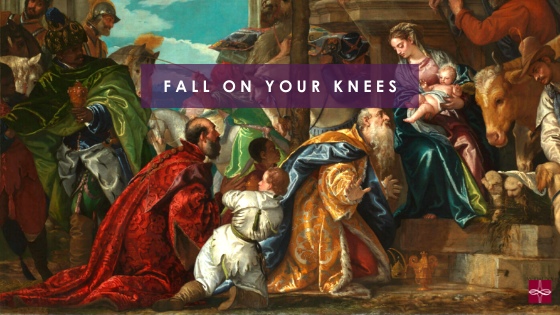

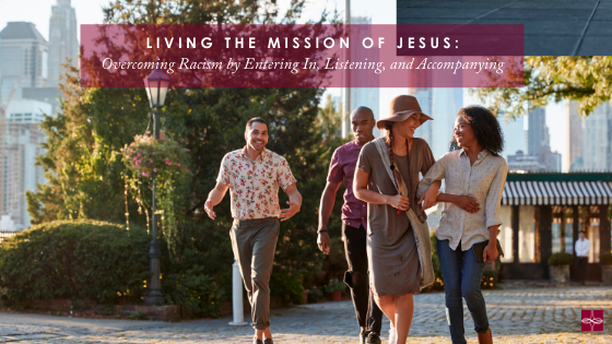

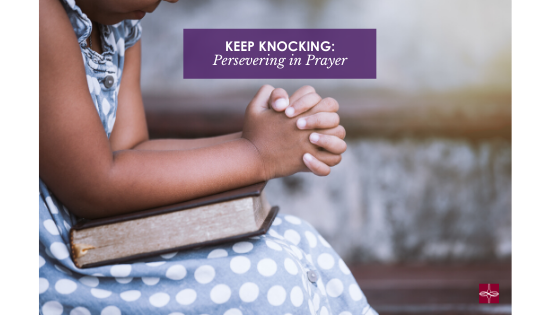

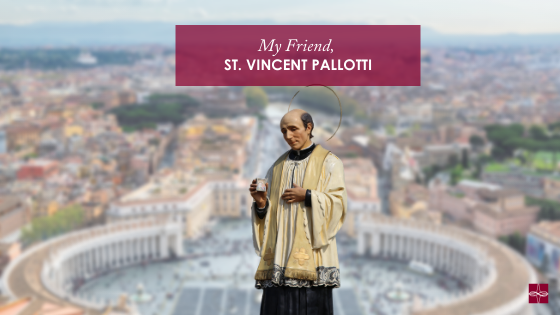
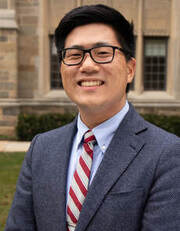
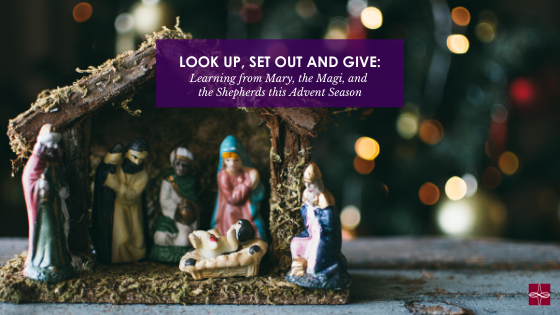
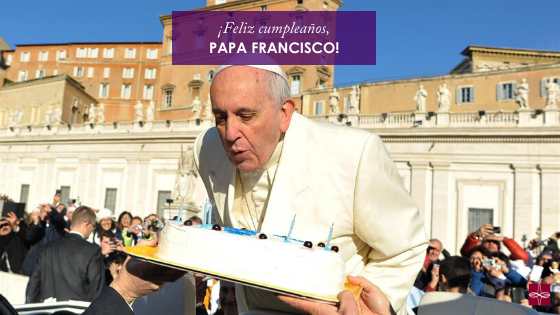

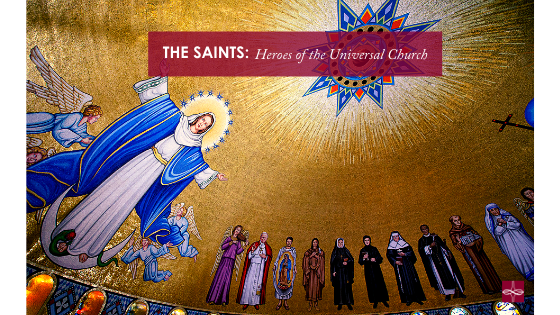

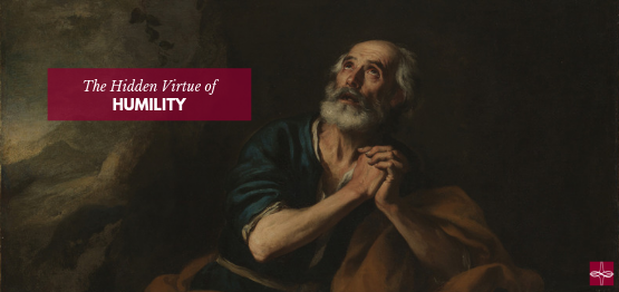

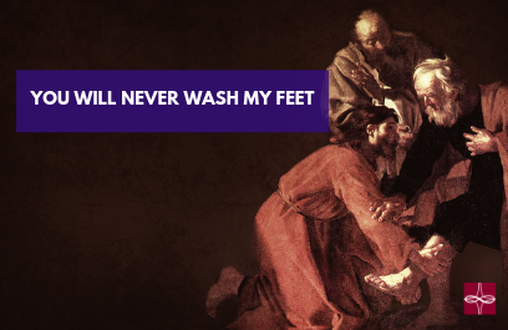

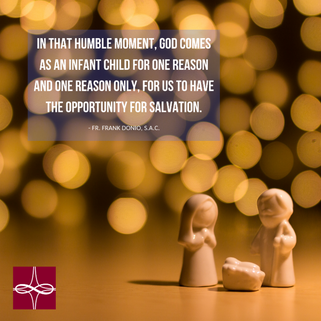
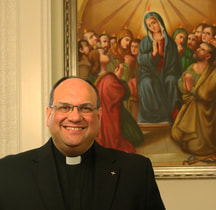
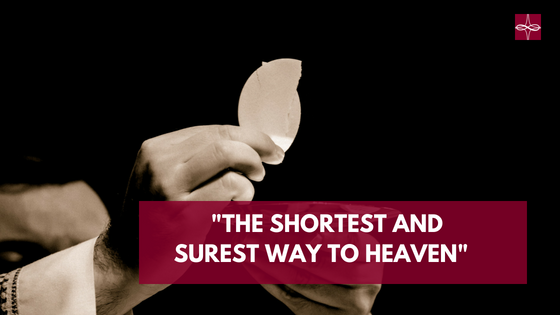

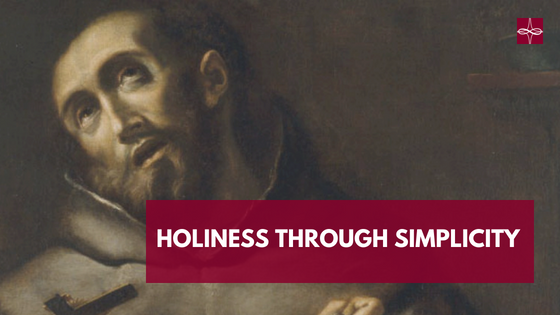



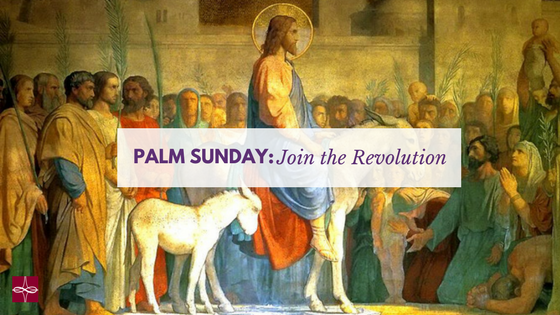

 RSS Feed
RSS Feed